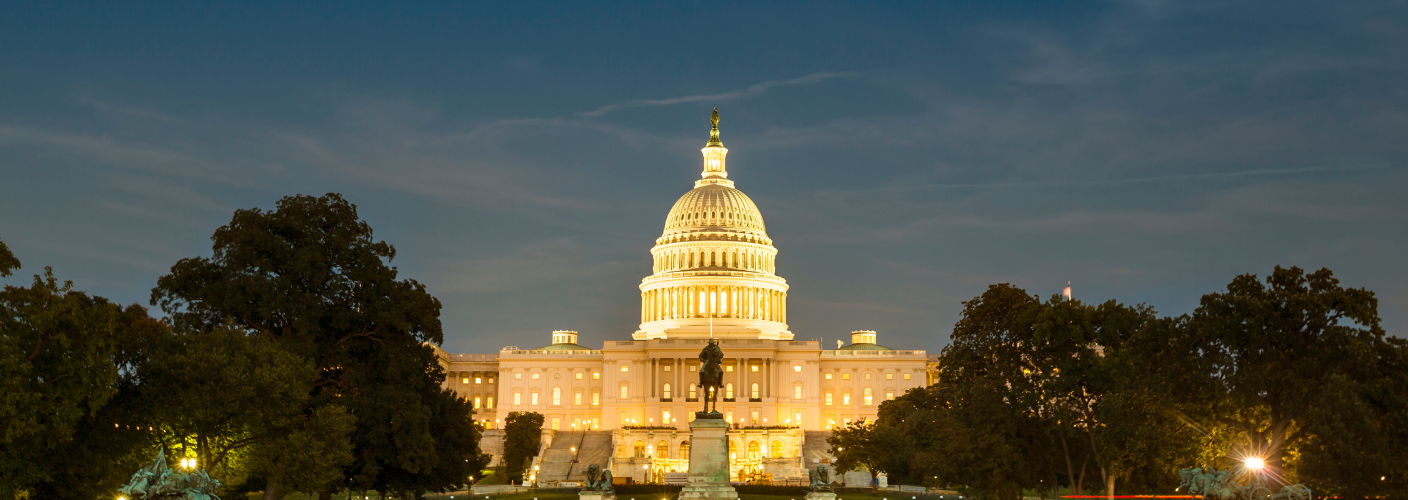Two political strategists who have a bird’s eye view of Capitol Hill updated the Arizona business community Wednesday on the latest federal relief package and what lies ahead in 2021 for Congress and the Biden administration.
At the top of the list is the $1.9 trillion proposed federal stimulus package that was approved by the House on Saturday. While some moderates and conservatives are voicing concerns about the cost of a third massive Covid relief package, the Senate is expected to rush passage with a few changes, said Erik Paulsen, a former U.S. congressman who now is a consultant with Total Spectrum, which is headquartered in Washington, D.C.

“There are some who are a little more skeptical about whether we need to spend all of these dollars,” said Paulsen, a former Congressman from Minnesota who was a leading member on the chief tax writing House Ways and Means Committee.
Much of the nation is seeing a resurgence in economic recovery already with added stimulus and many Americans are worried about the growing federal debt, said Paulsen, who spoke during a virtual event, the 2021 Outlook from Capitol Hill, hosted by the Arizona Chamber of Commerce & Industry.
The proposed package comes on the heels of the $2 trillion Covid relief plan passed last March during widespread shutdowns of the economy followed by the end-of-the year $900 billion package.
Patrick Robertson, a principal of Total Spectrum who has spent almost 20 years in Washington advising clients on public policy issues also spoke at the event.

The two laid out details of the proposed relief plan and discussed other upcoming issues that are important to business.
What’s in the proposed stimulus package
Most of the package, called the American Rescue Plan, is expected to be approved by the Senate, they said. Any changes will have to go back to the House for final approval before being sent to President Joe Biden.
Highlights of the proposed package include:
Extended unemployment benefits Unemployment insurance benefits would be extended and increased for the third time. The bill calls for an additional $400 per week in benefits for the unemployed.
Expanded child tax credits Child tax credits would be increased from $2,000 to $3,600 per child.
Direct stimulus payments Another round of stimulus checks would include $1,400 direct payments to adults and children. The House proposal calls for the payments to go to individuals earning up to $75,000 and couples making up to $150,000. Thus, a family of four would receive $5,600.
A host of other measures also are included: $25 billion to aid small and mid-sized restaurants still struggling from the pandemic, $15 billion for grants to businesses in low-income communities, $1.25 billion for shuttered venue operators, payments to help Americans continue to pay health care premiums, aid for local governments, and more.
Minimum wage hike likely will not survive this legislation
One item in the package that appears to be on the chopping block is a provision to raise the minimum wage to $15 an hour over the next four years.
The Senate parliamentarian, a neutral arbiter of the chamber’s rules, issued guidance saying the wage increase didn’t meet the guidelines for a budget reconciliation package. Under reconciliation, bills can pass with a simple majority, rather than the 60 votes required to invoke cloture, which ends a filibuster on a bill.
Looking ahead: corporate tax rate and infrastructure
Paulsen and Robertson also spoke about whether Congress will be able to overcome division between the two parties to finally pass a long awaited infrastructure bill, a top priority for the business community.
President Biden has made infrastructure a priority and they said Congress could succeed this year and pass a comprehensive package to update the nation’s highways, bridges, water facilities, transportation systems, and other infrastructure. Projects for the modern age will be included — green and renewable energy, expansion of broadband as well as development tax credits and workforce investment.
A new funding mechanism for such a plan will be needed, however, which could be a challenge considering the president has vowed not to increase taxes during the pandemic, Robertson said.
Attempts to raise the gas tax to fund projects through the Highway Trust Fund have failed year after year. The tax is also becoming less sufficient as a funding source as electric vehicles move to the forefront of society, he said.
“The current Highway Trust Fund doesn’t pay for itself,” Robertson said. “Now, we have Teslas and Priuses and people using different amounts of gasoline. Gasoline isn’t the only marker for how much you’re using our roads.”
Biden has also proposed hiking the corporate tax rate from 21 to 28 percent, which would put the U.S. at a disadvantage, Paulsen said. That would spur industry and jobs to start relocating outside of the country again.
“That would move us to the highest of all OECD (Organization for Economic Cooperation and Development) countries in the world, so we would be uncompetitive again,” he said.
Centrists will play important role
With narrow majorities in both houses, moderation will be needed to temper the far left and far right, both said.
Lawmakers like Arizona’s Senator Kyrsten Sinema (D) have shown that they can place their constituents above politics. Arizona’s newest Senator, Mark Kelly (D), could follow her lead, Robertson said.
“It appears that Senator Kyrsten Sinema does a pretty good job of listening and representing the interests of Arizona and I think Senator Kelly could learn a lot from that, advocating for Arizona instead of Democrats,” he said.
Paulsen agreed.
“Senator Kelly has mentioned he’s been spending time getting to know colleagues on both sides. If you want to be an effective legislator, you need to build relationships and he’s doing that with Republicans, which is what the country is looking for and certainly those in Arizona are looking for to make progress on the legislative front,” he said.
















Add comment